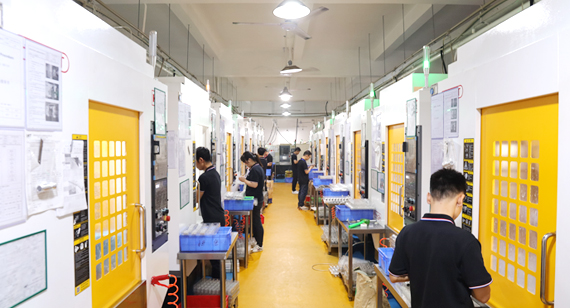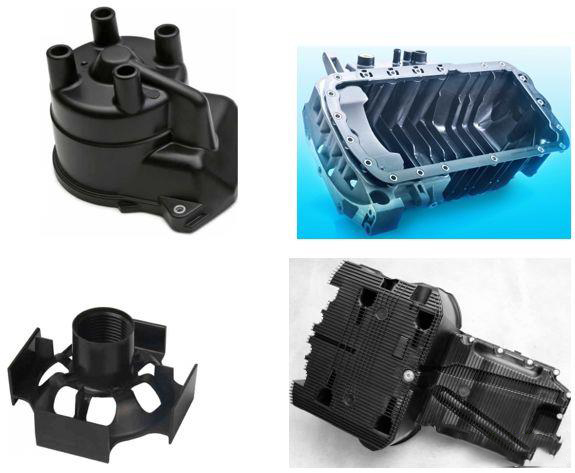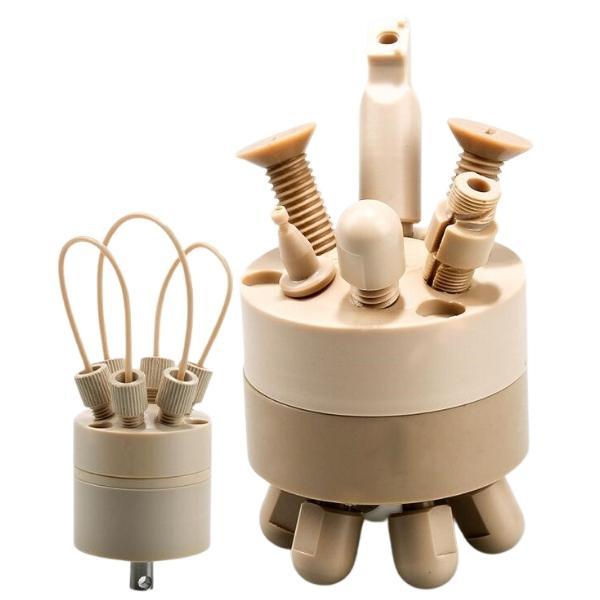15 years one-stop China custom CNC machining parts factory

Hey there I’m VMT Sam!
With 25 years of CNC machining experience we are committed to helping clients overcome 10000 complex part-processing challenges all to contribute to a better life through intelligent manufacturing. Contact us now
 132 |
Published by VMT at Oct 11 2023
132 |
Published by VMT at Oct 11 2023
Due to its numerous advantages over metal, the substitution of plastic for metal has become an international trend in various industries, including electronics, automotive, construction, machinery, new energy, and transportation.
As the plastics industry continues to evolve, existing plastic properties are continually improved, and new high-performance plastics are being developed, expanding the range of applications where plastic can replace metal. Many companies consider replacing metal with plastic as a key strategy for reducing CNC machining product costs.

Automotive Industry
As society and technology advance, consumers demand lighter, more energy-efficient, aesthetically pleasing, safe, and environmentally friendly vehicles. Plastic has gained a significant advantage over metals due to its excellent performance, affordability, and simple CNC machining.
In the automotive sector, plastics can replace various costly non-ferrous metals and alloy materials, from small components like pedals, door handles, and intake manifolds to larger components like body panels and even engines. Plastic enhances the aesthetics of car designs, offers design flexibility, reduces CNC component machining, assembly, and maintenance costs, and contributes to lower vehicle fuel consumption.
For example, General Motors conducted a test where a car component required 38 metal parts, costing $75. Using plastic to consolidate all parts into a single component reduced the cost to $30, shortened assembly time by 55%, and achieved a 99% pass rate. This is due to the advantages of engineering plastics, including part integration, low secondary processing costs, shorter design cycles, high quality, and productivity. The trend of replacing metal with plastic is driven by customer demands, energy savings, emissions reduction, and market competition. In 1970, a car had approximately 50 kg of plastic, and by 2011, this had increased to 300 kg.
This trend has expanded from the automotive industry to heavy trucks, tractors, diesel and marine engines, recreational vehicles, as well as various equipment such as lawnmowers and generator engines.

Photovoltaic Industry
In the photovoltaic industry, junction boxes used in outdoor and harsh environments have stringent requirements for corrosion resistance, service life, impact resistance, weather resistance, and protection levels for internal components. Compared to metal junction boxes, plastic junction boxes offer twice the corrosion resistance, 2-3 times the service life, superior weather resistance, and a 22% higher protection level, up to IP67. Currently, in developed countries in Europe and North America, the proportion of plastic junction boxes in photovoltaic equipment has reached 53%.
Medical Equipment
In the expensive medical instrument and versatile surgical equipment sector, plastics are continuously replacing stainless steel and other metals. The design flexibility and ease of CNC machining of plastic parts allow medical companies to bring new products to market faster.

In summary, the transition from metal to plastic in CNC machining applications is a global trend in industries such as automotive, photovoltaics, and medical equipment. This shift offers cost savings, improved performance, and design versatility, making it a key strategy for reducing CNC machinign product costs and enhancing overall quality.
Ready To Start Your Next Project?
Get Instant Quote

Request a Free Quote
Send us a message if you have any questions or request a quote. We will get back to you ASAP!